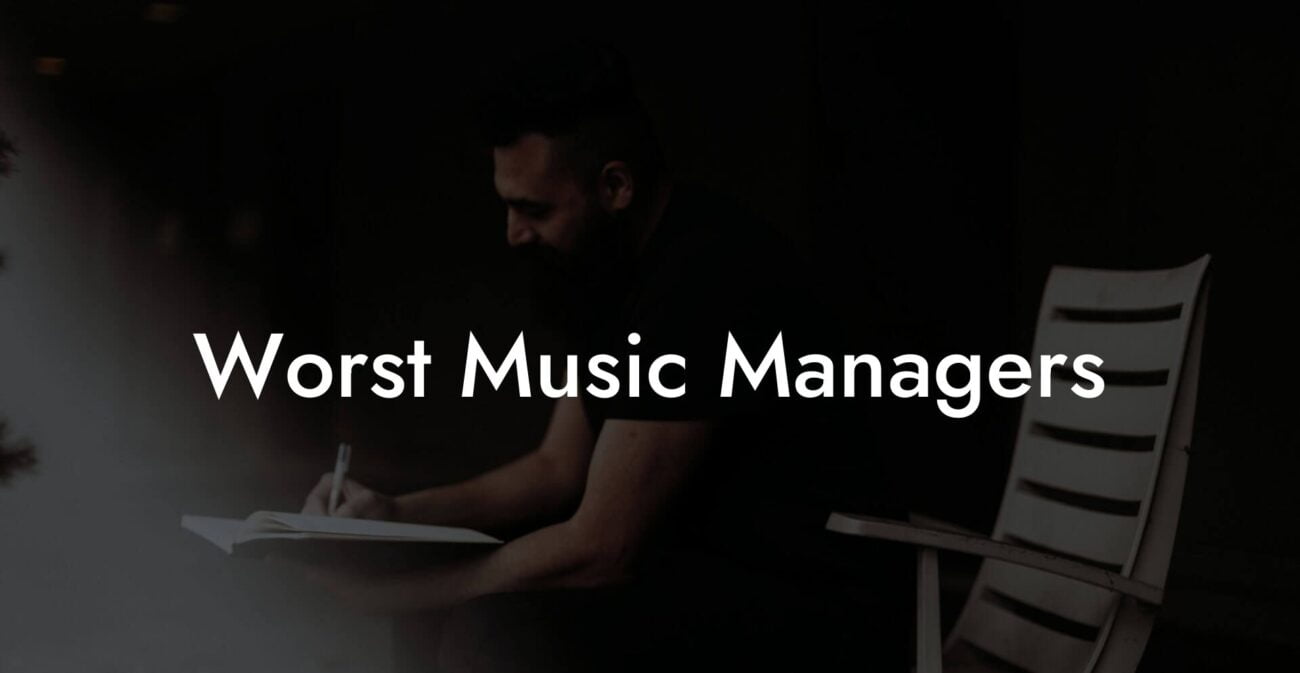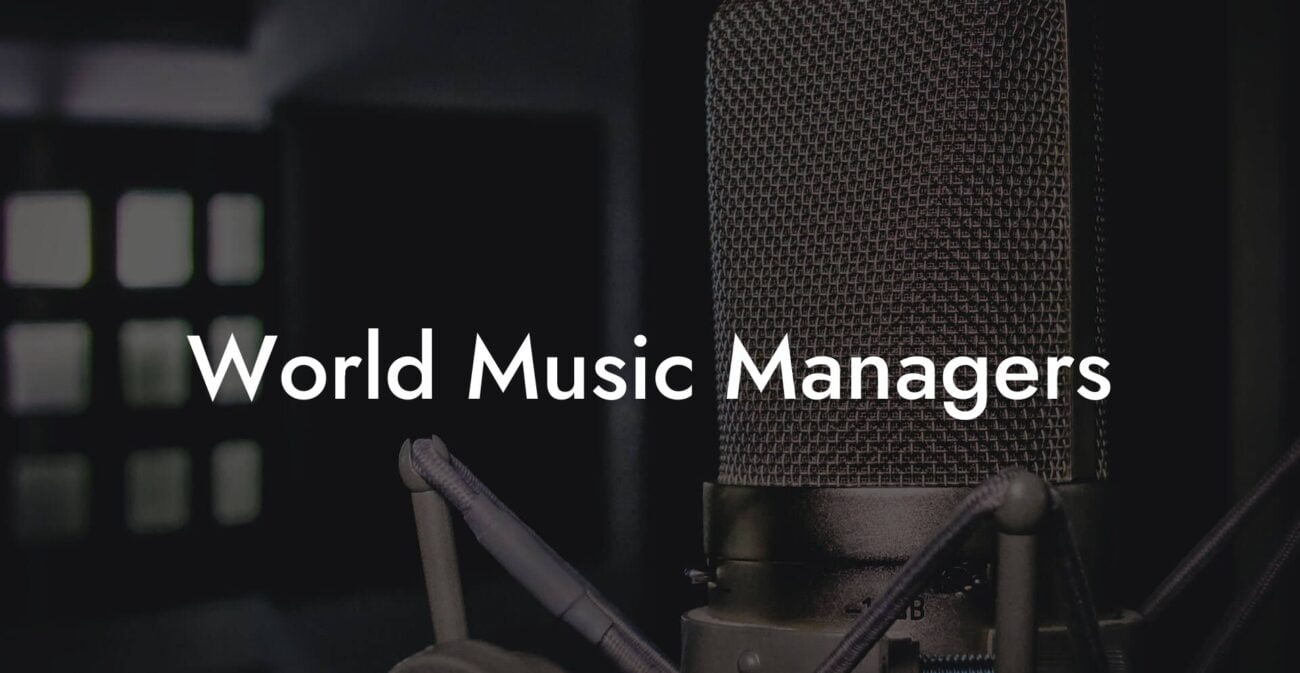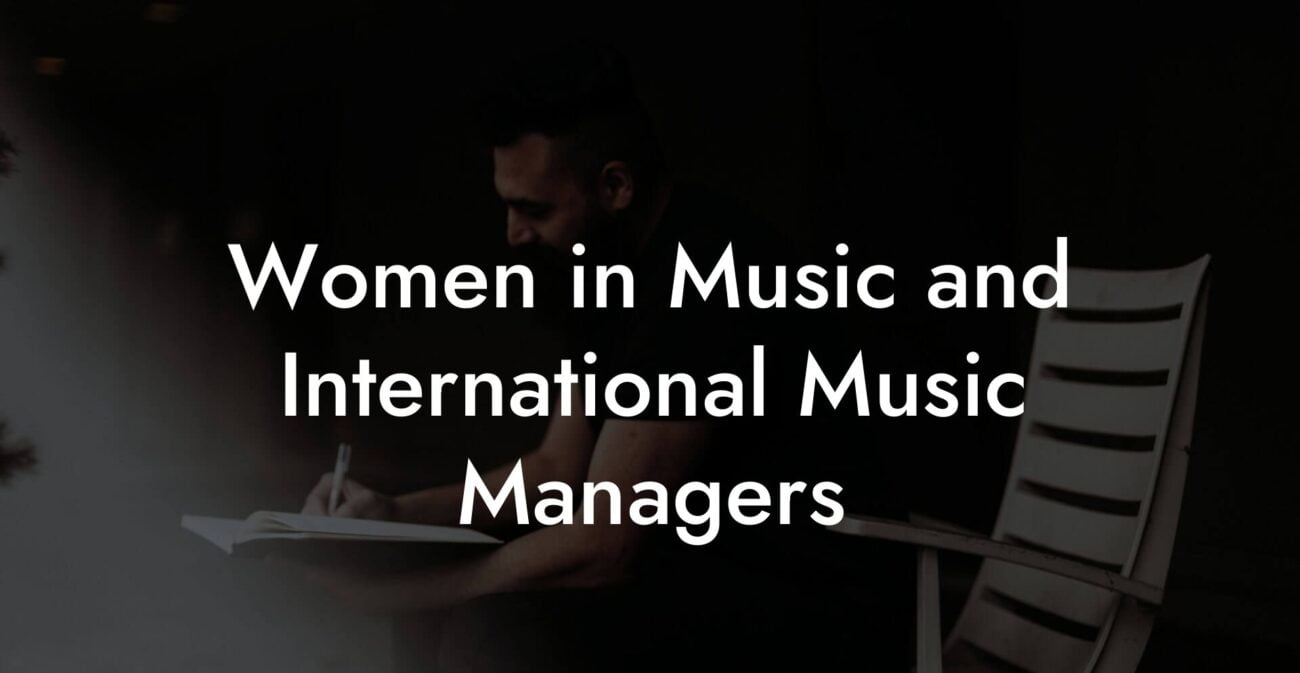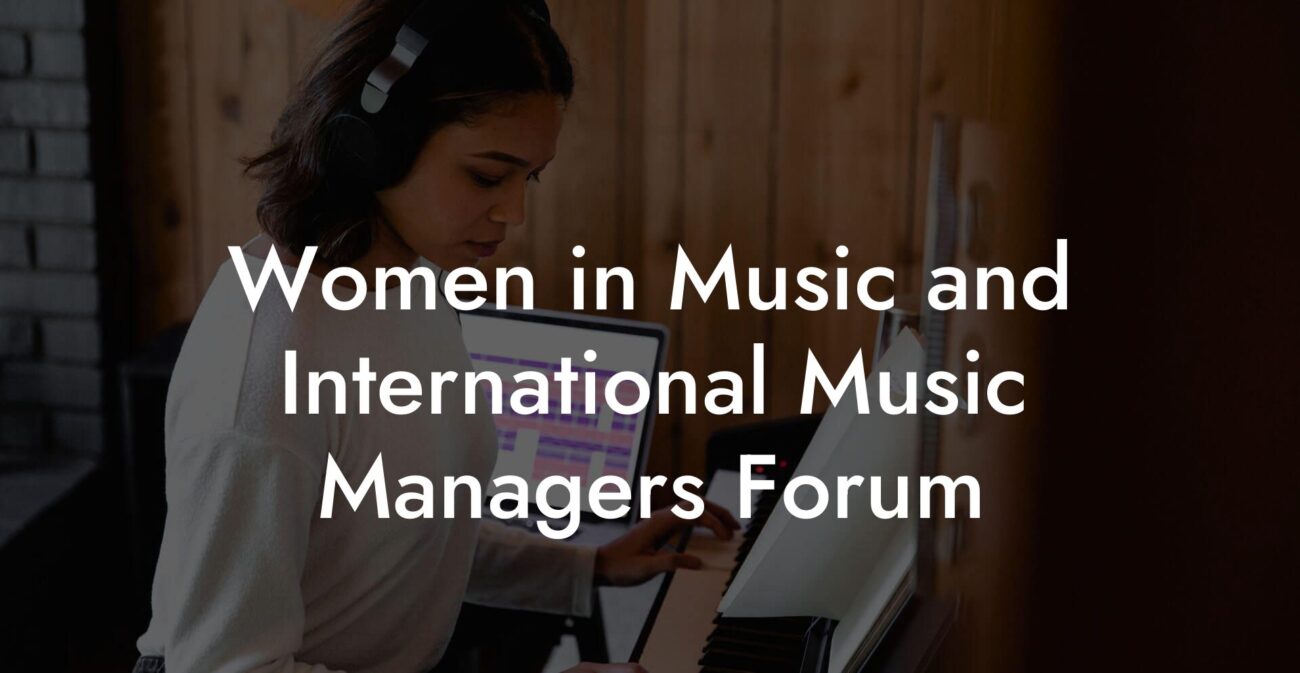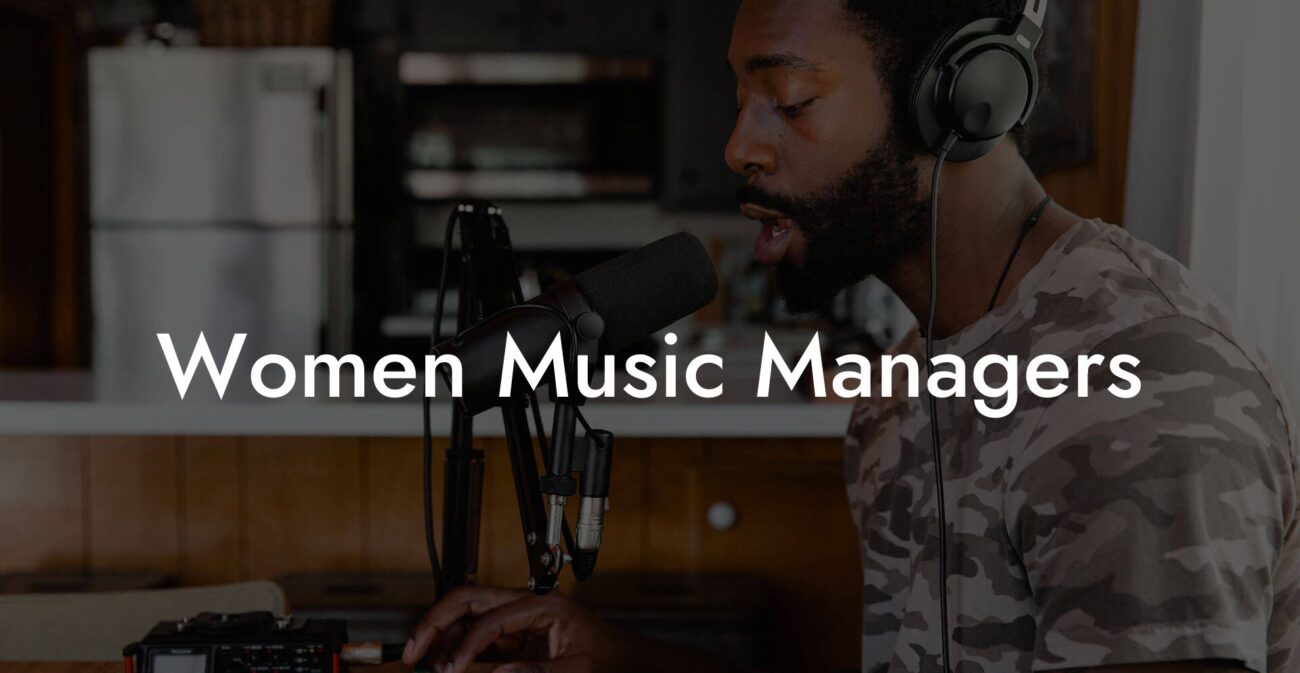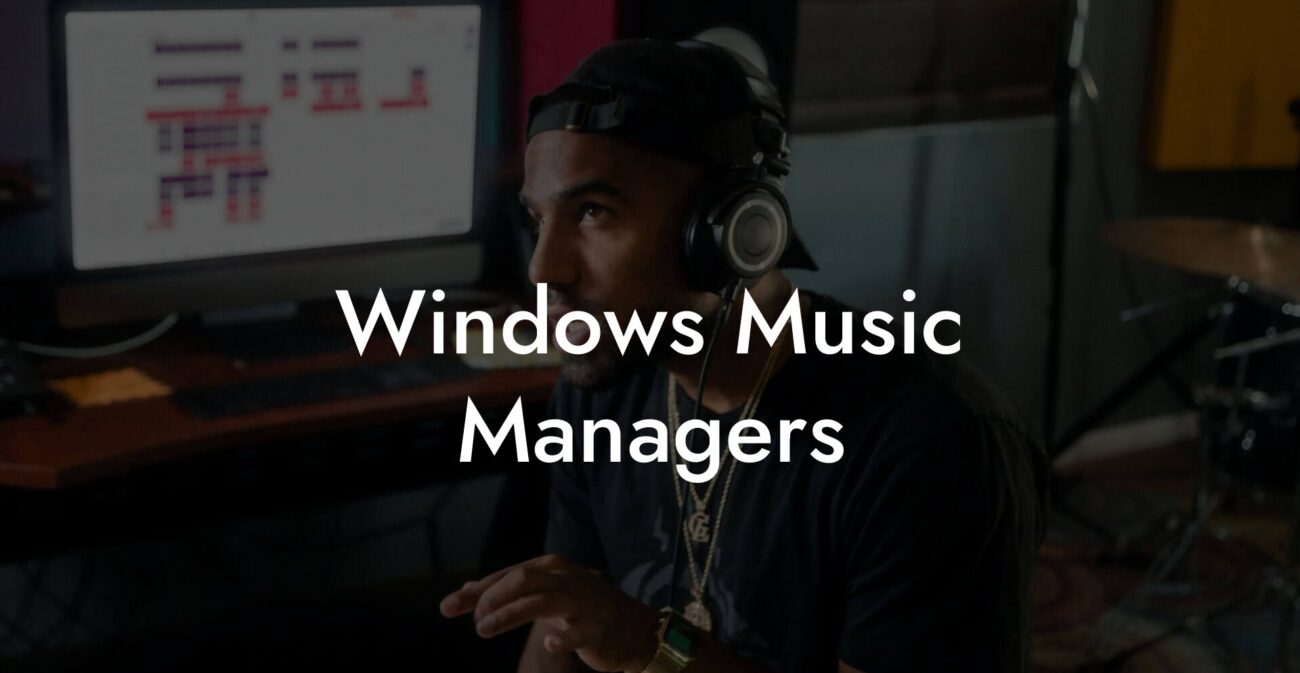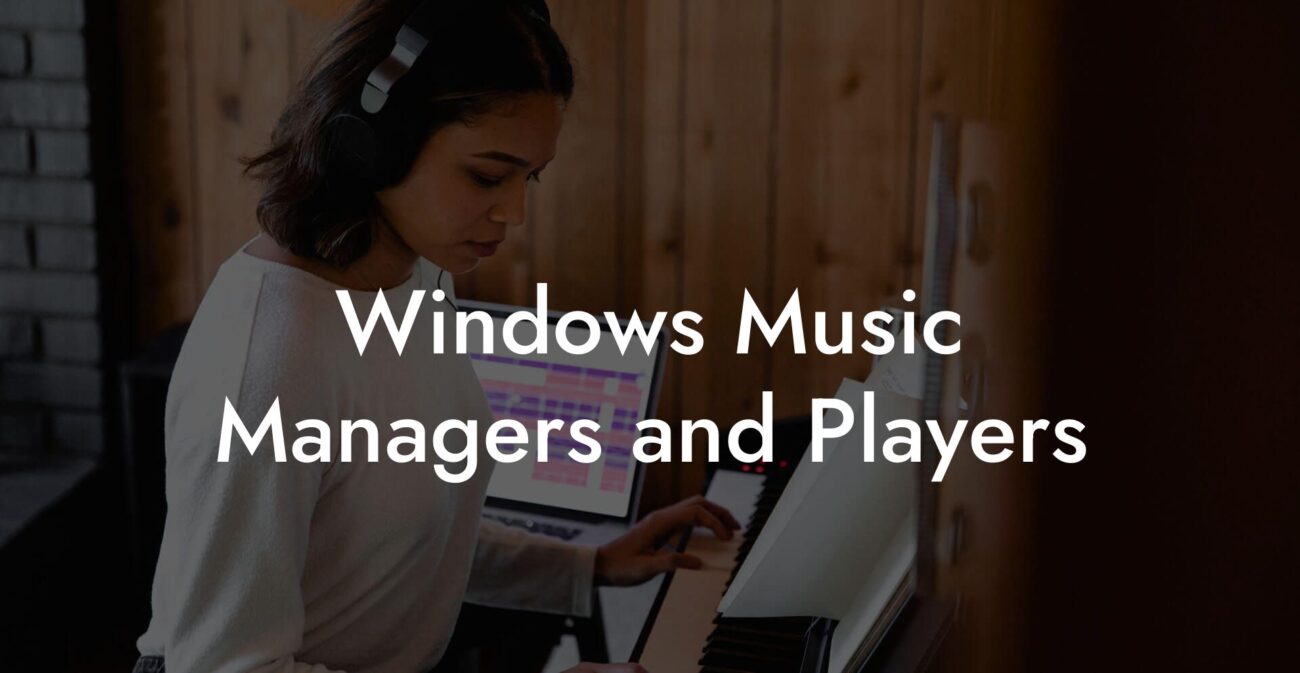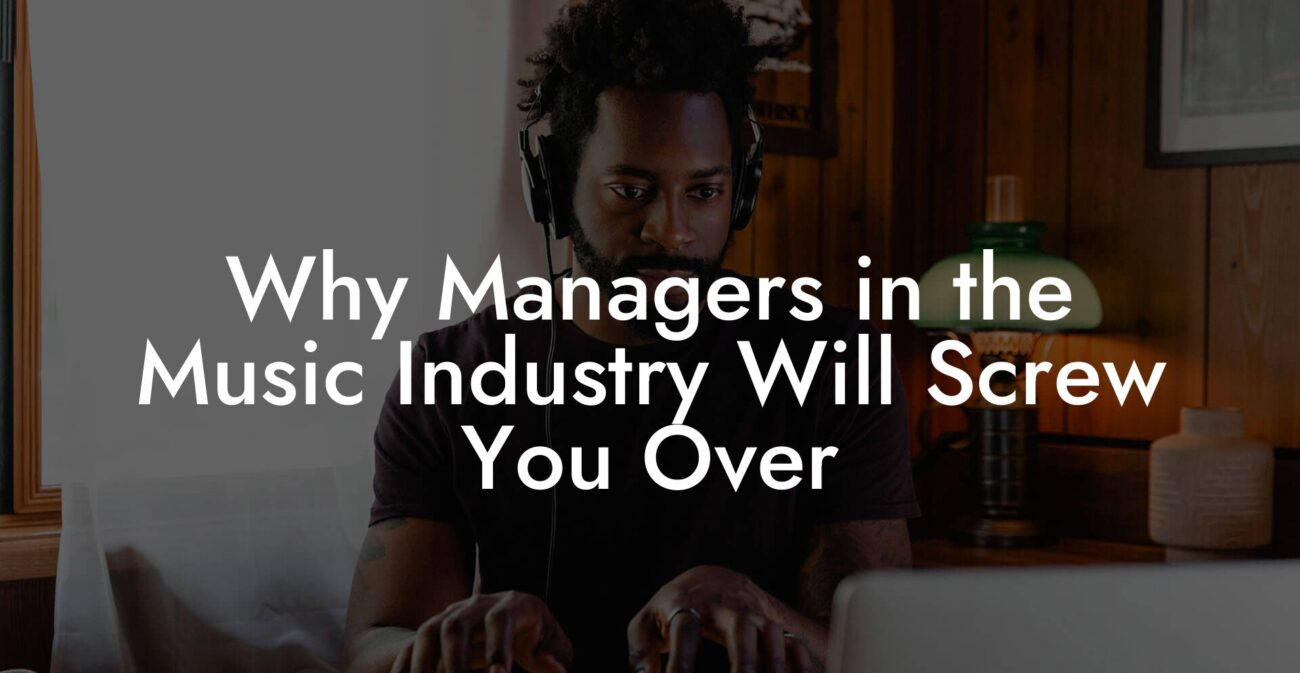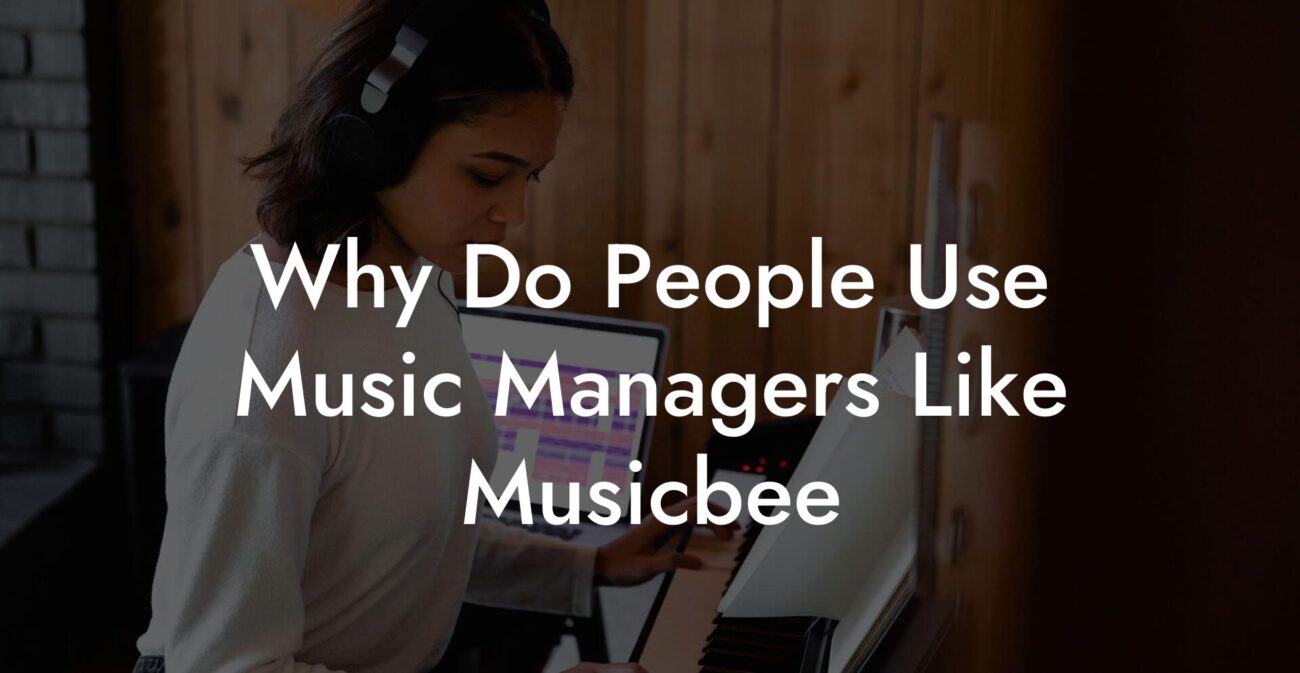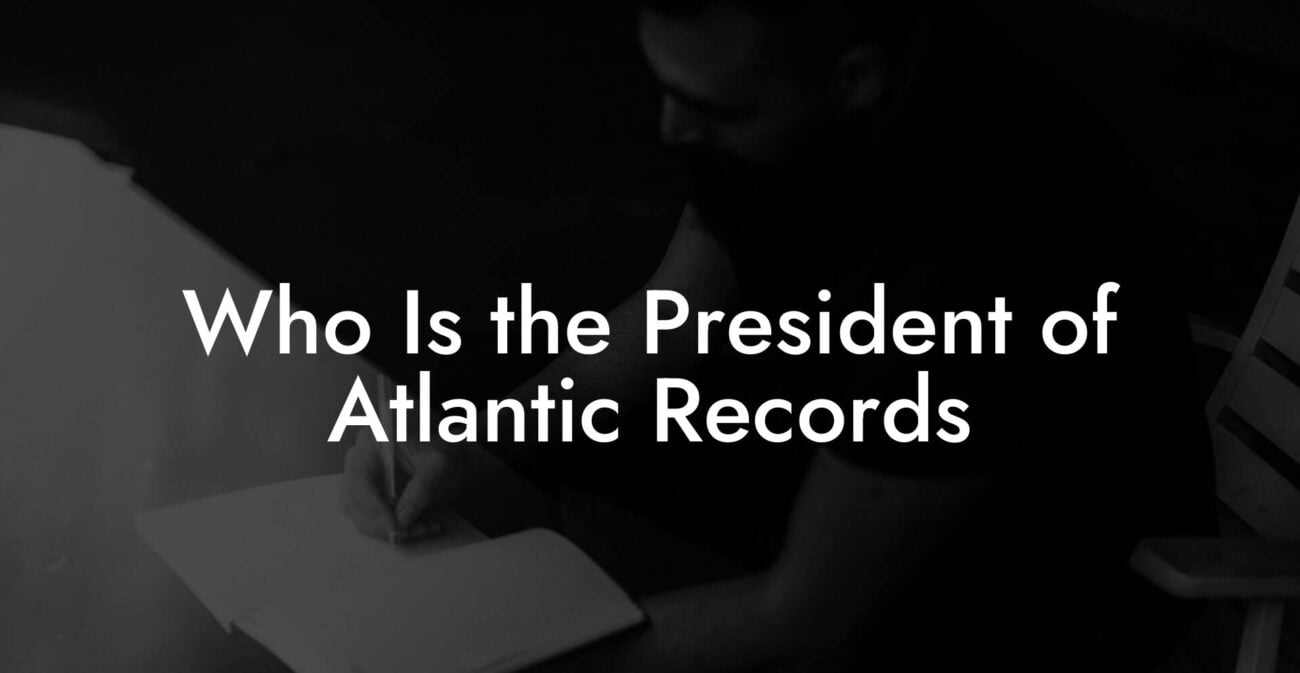Songwriting Advice
Where Do You Meet Music Managers
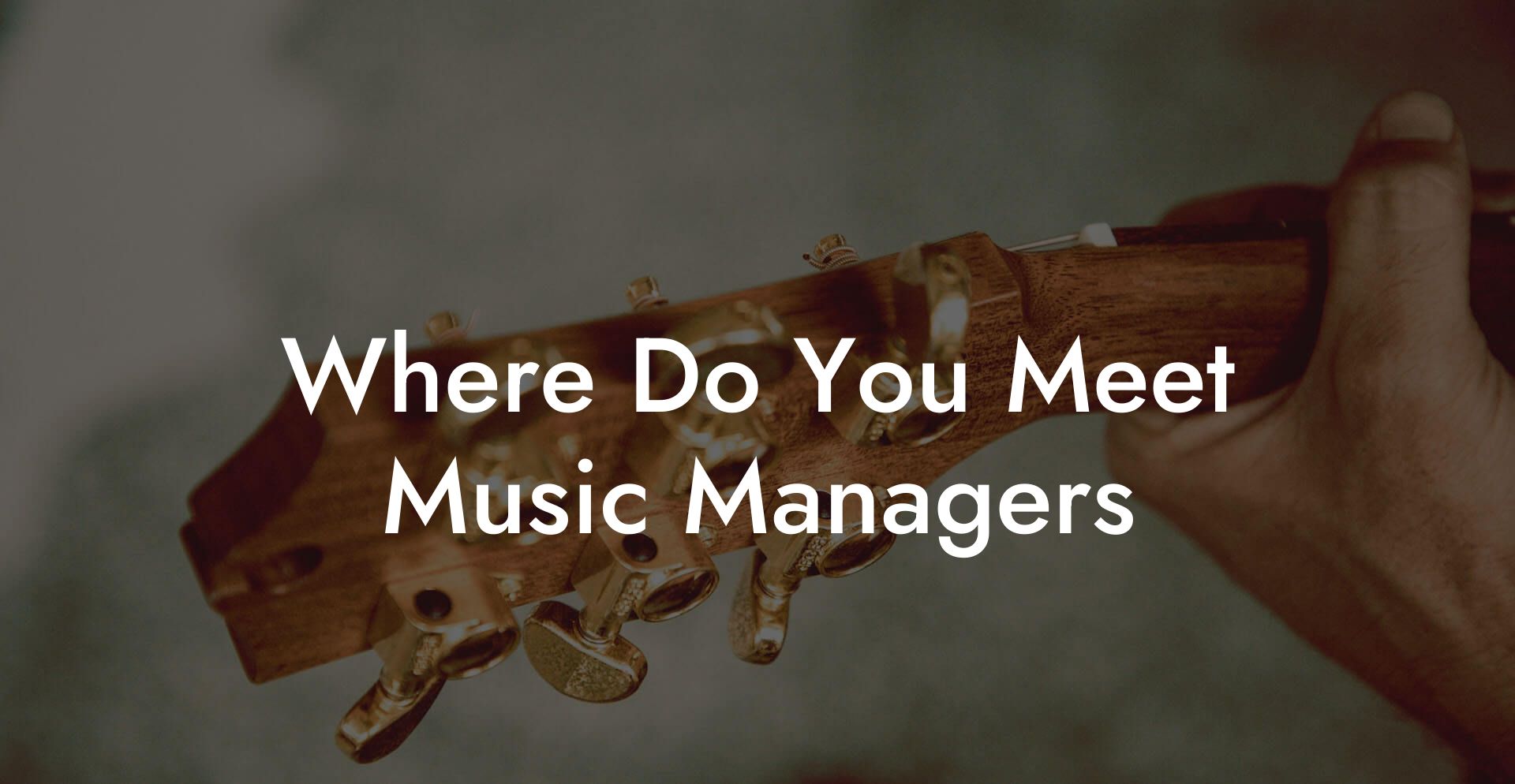
Ever wondered if there’s a secret clubhouse where music managers hang out, sipping artisanal lattes and scouting the next big songwriting sensation? Well, you’re in the right place! Whether you’re an aspiring lyricist jamming in your bedroom studio or a Gen Z virtuoso storming through your campus gigs, finding a music manager is the golden ticket to transforming your creative spark into a full-blown career. Let’s dive into where you can meet these gatekeepers to the music industry, and how to do it with style, swag, and a dash of humor.
Quick Interruption: Ever wondered how huge artists end up fighting for their own songs? The answer is in the fine print. Learn the lines that protect you. Own your masters. Keep royalties. Keep playing shows without moving back in with Mom. Find out more →
Quick Interruption: Ever wondered how huge artists end up fighting for their own songs? The answer is in the fine print. Learn the lines that protect you. Own your masters. Keep royalties. Keep playing shows without moving back in with Mom. Find out more →
Quick Links to Useful Sections
- Understanding the Role of Music Managers
- Where Can You Meet Music Managers?
- Industry Conferences and Music Festivals
- Local Music Venues and Open Mic Nights
- Music Industry Meetups and Networking Events
- Social Media & Online Communities
- Virtual Conferences and Webinars
- Digital Networking: Navigating the Online Music Scene
- Building a Killer Online Presence
- Leveraging Niche Platforms
- The Art of Authentic Engagement
- Online Collaborations and Remix Projects
- Mastering the Art of Pitching: How to Impress Music Managers
- Know Your Story
- Be Professional (Without Losing Your Edge)
- Showcase Your Work (and Your Process)
- Follow Up and Stay Persistent
- Real-life Success Stories: How Musicians Met Their Managers
- Case Study 1: The Festival Surprise
- Case Study 2: The Digital Connection
- Case Study 3: The Community Collaborative
- Resources and Community Support: Your Next Steps
- Strategic Tips for Networking and Building Your Career
- 1. Create a Consistent Brand Identity
- 2. Engage, Collaborate, and Support Others
- 3. Master the Art of Social Proof
- 4. Practice Your Pitch
- 5. Be Patient and Persistent
- Your Journey to a Thriving Music Career Begins Now
- FAQs: Your Burning Questions Answered
- Your Next Step: Embrace the Journey with Confidence
Understanding the Role of Music Managers
Picture your music career as a wild road trip. A music manager is like that all-knowing GPS that not only maps out the best path to the destination but also makes sure your car is fueled with inspiration and stocked with creative snacks. They’re the strategic masterminds behind your success, handling the nitty-gritty of contracts, bookings, and networking, so you can focus on writing the hit songs that keep fans dancing.
But it’s not just about logistics; managers thrive on building relationships, connecting talents, and helping artists dodge the potholes (or bad decisions) that the music industry occasionally throws in your way. In essence, a music manager is part mentor, part cheerleader, and part business guru, all rolled into one. Understanding this role is the first step towards unlocking a treasure trove of opportunities.
As you navigate your journey, keep in mind that the modern music landscape values authenticity, creativity, and digital savviness. With the rapid evolution of streaming platforms, social media, and indie labels, music managers are scouting for artists who bring both originality and the hustle.
Where Can You Meet Music Managers?
Let’s cut to the chase: if you’re wondering where the elusive music managers hang out, the answer is, they’re everywhere! From in-person hotspots at trendy indie music festivals to the sprawling digital realms of social media, opportunities aren’t limited to any one place. Here are some prime (and not-so-obvious) settings where you might just bump into your future manager:
Industry Conferences and Music Festivals
Major industry events like SXSW, MIDEM, and local music festivals are veritable magnets for creative talent and music professionals. These gatherings aren’t just about the headlining acts, they’re networking goldmines. Be sure to have your pitch (and maybe a snappy business card) ready because a casual conversation over a craft beer or a backstage pass might just turn into the beginning of a fruitful working relationship.
Even if you’re not headlining a festival, volunteering or attending workshops at these events provides unparalleled opportunities to mingle with people who are as passionate about music as you are. Look for panels and breakout sessions focused on music management and industry insights. These are prime moments to introduce yourself, ask thoughtful questions, and maybe even share a laugh or two about the quirks of the modern music biz.
Local Music Venues and Open Mic Nights
If the glitz and glamour of major festivals aren’t your scene, head to your local music venue. Small gigs, open mic nights, and house concerts are intimate spaces where raw talent meets industry insiders. Music managers often attend these shows looking for the next underground sensation. Remember, a killer live performance can create buzz long before the online world hears your name.
Do your homework, find out which venues or coffee shops have a reputation for spotlighting emerging talent. Strike up a conversation with the organizers, fellow performers, or even the bartenders (who often know everyone in the scene). Your next big break might just be one casual interaction away.
Music Industry Meetups and Networking Events
Think beyond concerts: academic institutions, creative co-working spaces, and local industry meetups are also treasure troves for discovering music managers. In today’s fast-paced era, networking events offer the chance to mix business with passion in a relaxed, engaging environment. Don't be surprised if you find yourself exchanging ideas over a shared playlist or collaborating on an impromptu songwriting session.
Consider attending events organized by local music collectives, production houses, or even online webinars that focus on the music industry. These are excellent venues to listen, learn, and most importantly, introduce yourself with the confidence of someone who’s ready to rock the industry.
Social Media & Online Communities
In this digital age, meeting a music manager isn’t confined to physical spaces; the online world is buzzing with opportunities. Platforms like LinkedIn, Twitter, Instagram, and even Clubhouse host numerous conversations led by industry veterans. Join Facebook groups or subreddits dedicated to music professionals where you can interact, share your work, and even ask for advice.
When using social media, be strategic. Engage with posts and threads about music management, comment with genuine insights, and share your creative journey. Create a compelling online presence that reflects not just your talent but also your personality. After all, authenticity is the currency in this realm.
Virtual Conferences and Webinars
The past few years have accelerated the rise of virtual events, webinars, online workshops, and digital summits specifically tailored for music industry professionals. These virtual spaces can be less intimidating than in-person events, allowing you to connect from the comfort of your home studio. Look for events hosted by well-known industry insiders, where interactive Q&A sessions can give you direct access to seasoned music managers.
With the digital transition, meeting a music manager isn’t about geography, it’s about tapping into the global network of industry experts with just a few clicks. Leverage hashtags, join virtual breakout rooms, and be open to collaboration, even when screens separate you.
Digital Networking: Navigating the Online Music Scene
In today’s tech-savvy world, digital networking is a lifeline. Think of it as the modern-day equivalent of mingling at a swanky party, only now you can do it in your pajamas! The online music community is vibrant, inclusive, and filled with goldmines of connections if you know where to look.
Building a Killer Online Presence
First impressions matter, even on the internet. Ensure your social media profiles, website, and music streaming pages are polished, professional, and above all, authentic. As you share your music, creative process, and behind-the-scenes moments, you’re not just building a fan base, you’re attracting the attention of those who can help amplify your career.
Use dynamic visuals, catchy headlines, and sincere storytelling to engage your audience. It’s not just about the music; it’s about your journey as a songwriter. For instance, if you’re using Lyric Assistant to craft your next chart-topping hit, share that process! It adds a layer of transparency and relatability that can catch the eye of a savvy music manager.
Leveraging Niche Platforms
Beyond the big social networks, there are niche platforms tailored for music professionals. Websites like SoundCloud, Bandcamp, and even collaborative platforms like Kompoz allow you to showcase your work to a dedicated community of creators and curators. These platforms often host contests, challenges, or feature sections that highlight exceptional talent, and yes, music managers are known to frequent these spaces!
Platforms like LinkedIn are particularly potent if you’re looking to network with more traditional professionals in the industry. Optimize your profile with relevant keywords such as “songwriter,” “music production,” and “music management,” and actively participate in discussions related to the music business.
The Art of Authentic Engagement
Digital networking isn’t about spamming DMs or using cheesy hashtags (sorry, #NotMyStyle). It’s about genuine interaction. When you comment on a music manager’s post or share an insightful take on industry trends, you establish a rapport that can lead to future opportunities.
Regularly participate in live streams, virtual jam sessions, and Q&A sessions. By showing up consistently and being authentically engaged, you not only grow your network but also create lasting impressions that might pave the way for an invaluable music manager connection.
Online Collaborations and Remix Projects
One of the most effective ways to get noticed is by collaborating. Reach out to fellow musicians, producers, or even vocalists on platforms like YouTube and TikTok. The magic of collaboration often sparks creative projects that catch the eye of industry professionals. Music managers love seeing artists who are versatile, open-minded, and ready to merge styles, whether it’s a surprise mashup or an experimental remix session.
Collaborations can immediately expand your network and, by extension, the circles in which music managers move. Sharing your work collectively opens up discussion forums, online showcases, and even virtual concerts that might just be the turning point in your career.
Mastering the Art of Pitching: How to Impress Music Managers
So you’ve connected, engaged, and built your online presence. Now, it’s time to get down to business, the pitch. Crafting the perfect pitch is like writing an irresistible hook: it needs to be memorable, authentic, and leave your audience craving more.
Know Your Story
Before you pitch, take a deep dive into your unique narrative. What sets you apart from the sea of talented artists out there? Whether it’s your uncanny ability to blend genres or your penchant for writing lyrics that feel like mini poetry slams, knowing your story is key. Music managers want to sign someone with passion, vision, and a story that resonates.
Craft a concise yet captivating elevator pitch that highlights your journey, your musical style, and your ambitions. This isn’t just about listing achievements, it’s about painting a vivid picture of your artistic identity.
Be Professional (Without Losing Your Edge)
Formatting and clarity matter. When you send that email or slide into the DMs of a music manager, keep it professional yet personal. A clear subject line, a brief introduction, and a call-to-action all work wonders. Remember, managers are busy professionals who appreciate concise communication that gets straight to the point.
Avoid overly casual language when initiating contact, but don’t be so stiff that you forget who you are, a creative force! Strike the right balance by showcasing your personality, your humor, and your commitment to your art.
Showcase Your Work (and Your Process)
Visual aids and a portfolio are your best friends. Include links to your best tracks, recent projects, and maybe even a behind-the-scenes look at your creative process (hint: Lyric Assistant is the secret sauce to smooth lyrics and catchy hooks!). Music managers are all about seeing the magic you can create, so don’t be shy about flaunting those creative chops.
Consider attaching a short demo reel, a professional press kit, or even a QR code that leads directly to your digital portfolio. The goal is to make it as easy as possible for a manager to experience your work and see the potential.
Follow Up and Stay Persistent
Even if you send out a perfectly crafted pitch, remember that persistence is key. A follow-up message, polite, thoughtful, and respectful, can often be the nudge a busy music manager needs. Timing is crucial; allow a reasonable gap between messages, and always be prepared to supply additional material or answer further queries.
Understand that rejection is part of the process. Use each interaction as a learning experience. Each “no” is simply a step closer to that elusive “yes” from a manager who believes in your potential.
Real-life Success Stories: How Musicians Met Their Managers
Inspiration is everywhere, and nothing fuels the fire like real-life success stories. Let’s take a look at a few tales of how emerging artists turned chance encounters into life-changing partnerships.
Case Study 1: The Festival Surprise
Meet Jamie, a bedroom songwriter who always dreamed of playing on the big stage. At a midsize regional festival, Jamie’s impromptu acoustic set caught the attention of a music manager who was scouting for genuine talent. Striking up a conversation over some local brews, they exchanged stories, and soon enough, Jamie was introduced to a network of indie labels and producers. Today, that unexpected conversation has morphed into a thriving career, with tours, collaborations, and a constant flow of creative inspiration.
Case Study 2: The Digital Connection
Then there’s Alex, a Gen Z artist known for mixing genres and innovative lyricism. Spending countless nights perfecting drops on TikTok and Instagram, Alex’s original songs started trending online. One day, a music manager spotted Alex’s content during a live Q&A session and reached out. After a series of engaging virtual meetings and a shared passion for unorthodox musical styles, the two teamed up. With the manager’s guidance, Alex’s online presence evolved into a brand that commanded attention at major digital festivals and streaming platforms.
Case Study 3: The Community Collaborative
Our final story features Sam, whose creative journey began in a local music meetup. Attending community jam sessions and collaborative songwriting workshops, Sam not only sharpened songwriting skills but also built a robust network. Through one of these sessions, Sam met a seasoned music manager who had a talent for spotting raw potential. Impressed by Sam’s collaborative spirit and keen ear for catchy hooks, the manager offered invaluable advice, leading to a partnership that catapulted Sam into professional gigs and recording sessions.
These narratives highlight the unexpected, serendipitous nature of meeting a music manager. It’s often about being open to the moment, harnessing every opportunity, and, above all, believing in your creative potential.
Resources and Community Support: Your Next Steps
So, you’ve got the lowdown on where to meet music managers and how to polish up your pitch. Now what? The music industry isn’t just a series of isolated encounters, it’s an ongoing conversation. Lean into available resources and tap into community support to keep your momentum going.
Check out platforms like LinkedIn and music forums where industry veterans share tips and upcoming events. Join local music groups on Facebook or Discord to stay updated on open mic nights, studio sessions, and networking events near you. Many organizations host free webinars and online workshops tailored to independent musicians, and these often feature guest speakers who are established music managers.
Don’t forget to leverage tools like Lyric Assistant to help you craft compelling lyrics and maintain a consistent creative output. When your lyric game is strong, every conversation with a potential manager becomes an opportunity to impress, engage, and eventually collaborate.
And remember, every action matters, attend events, interact online, seek constructive feedback, and above all, stay true to your artistic vision. Through persistence and community engagement, you’ll steadily build a support network that propels you towards your dream career.
Ready to take the next step? Take a deep breath, update your social media profiles, and get out there. Your music manager could be just one conversation away!
Strategic Tips for Networking and Building Your Career
Here are some practical and down-to-earth tips to ensure you shine in the crowded music arena:
1. Create a Consistent Brand Identity
Your online presence is your brand. Whether it’s on Instagram, Twitter, or a personal website, make sure your story and sound resonate consistently. Use eye-catching visuals, consistent color schemes, and language that reflects your vibe. A unified brand not only increases visibility but also makes you memorable to prospective managers.
2. Engage, Collaborate, and Support Others
The music community thrives on collaboration. Share others’ work, offer constructive feedback, and be proactive in joining projects. When you help others, they’ll likely return the favor, sometimes with valuable industry insights or introductions to the right people.
3. Master the Art of Social Proof
Accumulate testimonials, live performance videos, and press mentions. Social proof gives managers confidence in your abilities and demonstrates that you’re already creating an impact.
4. Practice Your Pitch
Take the time to rehearse your pitch until it feels natural. Whether you’re speaking to someone in person or over a virtual call, clarity and confidence are key. Remember, your pitch is not a script, it’s your creative identity in motion.
5. Be Patient and Persistent
Rome wasn’t built in a day, and neither is a successful music career. Be prepared for rejections and setbacks, the secret is to learn, adapt, and keep pushing forward. Every no brings you closer to the eventual yes.
Your Journey to a Thriving Music Career Begins Now
Navigating the music industry can feel like a roller coaster ride full of twists, turns, and loop-de-loops, but every step, every network event, and every digital interaction are paving the way to your dreams. With the right mix of passion, preparation, and a proactive approach to meeting music managers, you’re not just surviving, you’re thriving!
Take a moment to appreciate how far you’ve come. Every late night working on lyrics, every heartfelt note scribbled in a notebook, and every performance that pushed you out of your comfort zone is a testament to your dedication. Now, it’s time to keep that momentum alive.
Embrace the opportunities that each new connection provides. Whether you cross paths with a seasoned music manager at a festival or spark a conversation online via a savvy LinkedIn post, remember that every interaction is a building block in your expanding career. There will be ups and downs, but with persistence and creativity, the music industry will soon start to take notice.
Boldly step into the spotlight with a smile, a well-rehearsed pitch, and the unyielding confidence that your music has the power to move the world. The stage is set, the network is waiting, and your music manager could be just around the corner, or behind the next click of a notification.
FAQs: Your Burning Questions Answered
Here are some of the most common questions we get about meeting music managers and building your career in today’s ever-evolving music scene:
1. What is a music manager’s role in an artist’s career?
A music manager is like your behind-the-scenes strategist, they handle bookings, contracts, networking, and overall career direction. Their job is to ensure you get the opportunities you deserve so you can focus on your music.
2. Where is the best place to meet a music manager?
Music managers can be found in almost every music-related space, from industry conferences and local gigs to virtual webinars and social media platforms. The key is being in the right place at the right time while showcasing your unique musical identity.
3. How do I create a pitch that stands out?
Focus on your unique story and musical style. Keep your pitch concise, professional, yet personable, and make sure it highlights what makes you different. Showcase your best work, and don’t forget to mention any collaborations or projects that have gained attention.
4. Can I build relationships with music managers online?
Absolutely! Digital platforms like LinkedIn, Instagram, and niche music forums are filled with opportunities to network. Engage genuinely, share your creative process, and build a strong online presence to catch a manager’s eye.
5. How important is it to have a professional online presence?
A professional online presence is essential. It’s your digital resume. Consistent branding, quality content, and a well-curated portfolio can open many doors in the music industry.
6. Should I attend paid music conferences or stick to free local gigs?
Both have their merits! Paid conferences often feature big names and industry panels, while local gigs and meetups provide a more intimate, grassroots vibe. Mix it up to maximize your networking potential.
7. What if I don’t have a demo or portfolio yet?
Start small with recordings made at home, even if they’re rough around the edges. Use platforms like Lyric Assistant to polish your lyrics and gradually build a polished demo reel. Your passion and growth are what matter most.
8. How do I follow up after meeting a potential music manager?
Keep your follow-up friendly and professional. Thank them for their time, briefly remind them of your conversation, and share any additional information they might need. Persistence, without being pushy, is key.
Your Next Step: Embrace the Journey with Confidence
The world of music management is as expansive and dynamic as your creativity. Every networking event, every online interaction, and every live performance is a stepping stone toward building the career you’ve always envisioned. From the buzz of music festivals to the intimate vibe of local gigs, the opportunities to meet a music manager are all around you.
Stay curious, be bold, and keep honing your craft. Remember, your passion is the force that drives your music forward, and with the right manager by your side, the sky’s the limit. So, go ahead, step out of your comfort zone, explore new venues, and connect with people who share your vision. The industry is waiting for someone just like you.
Let every conversation be a chance to learn, every rejection a lesson, and every success a reminder that you’re on the path to greatness. And always remember: when you write your next hit with Lyric Assistant by your side, you’re not just creating music, you’re building a legacy.
Get out there, get noticed, and let your music light up the world. Your future music manager is just around the corner, so keep pushing, keep creating, and keep dreaming big.


